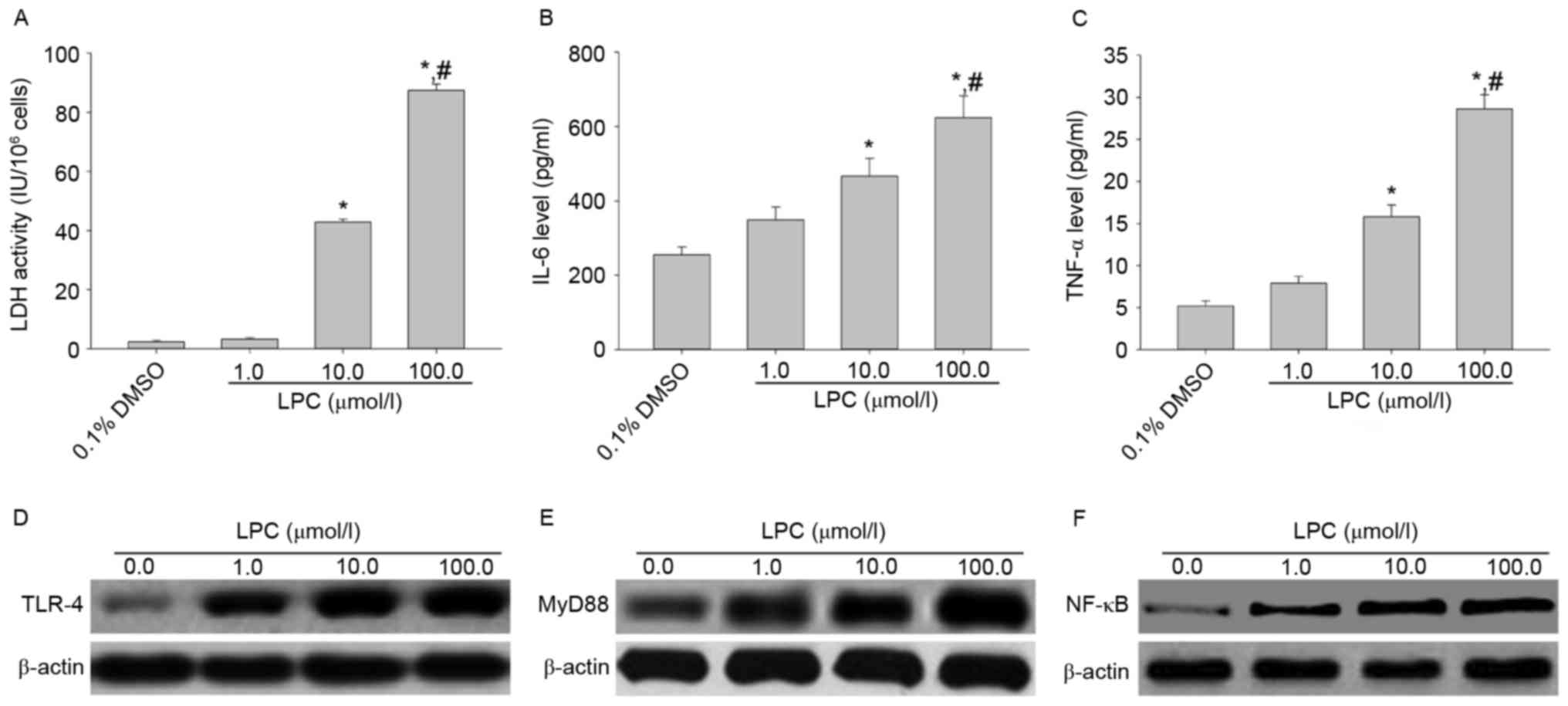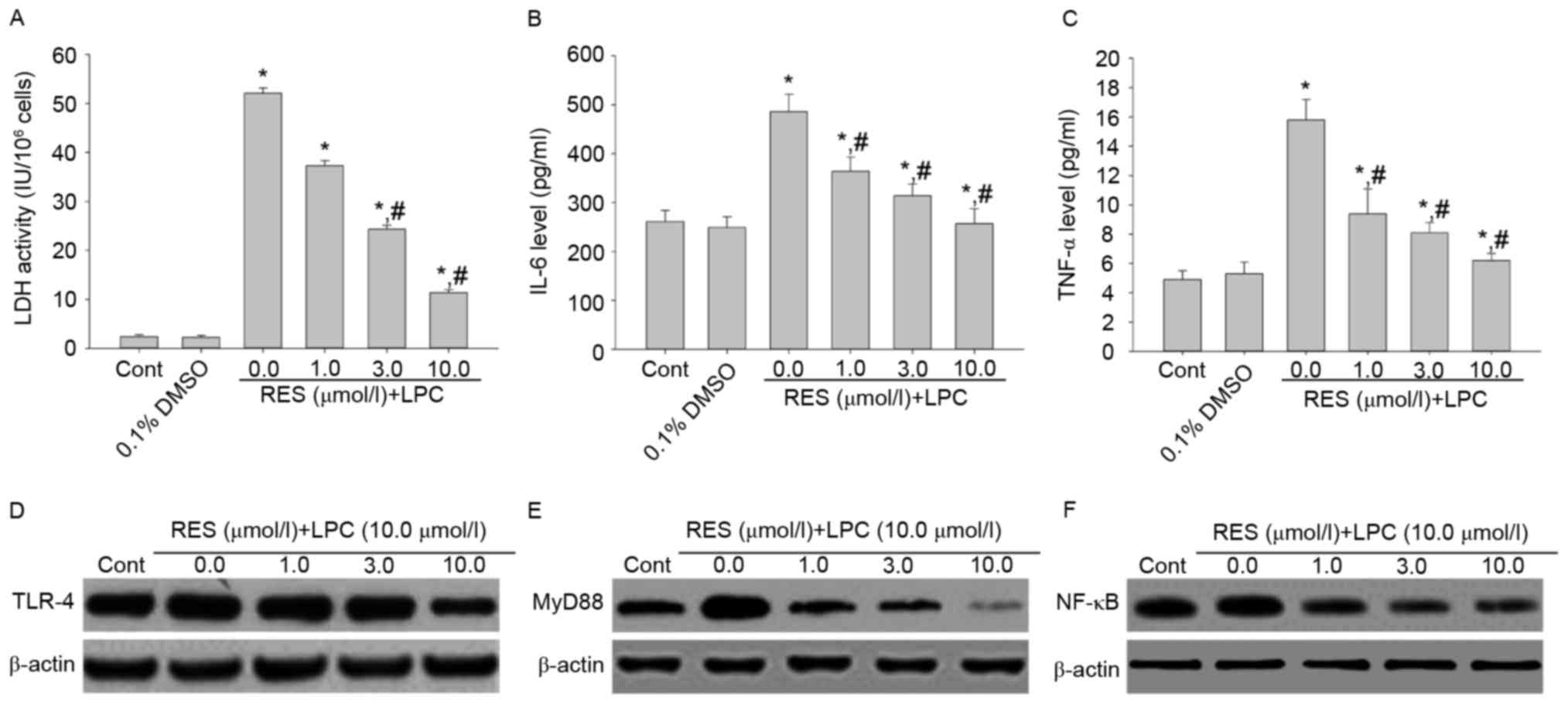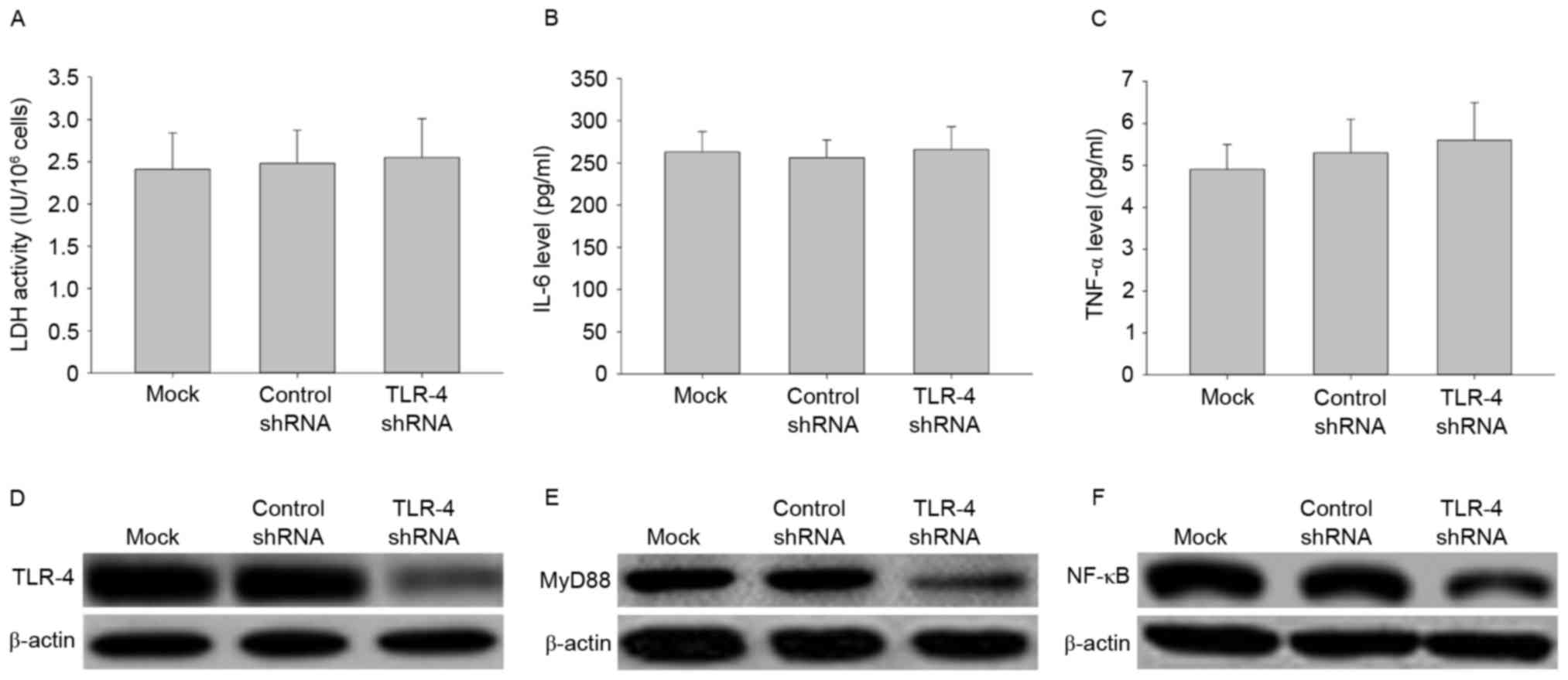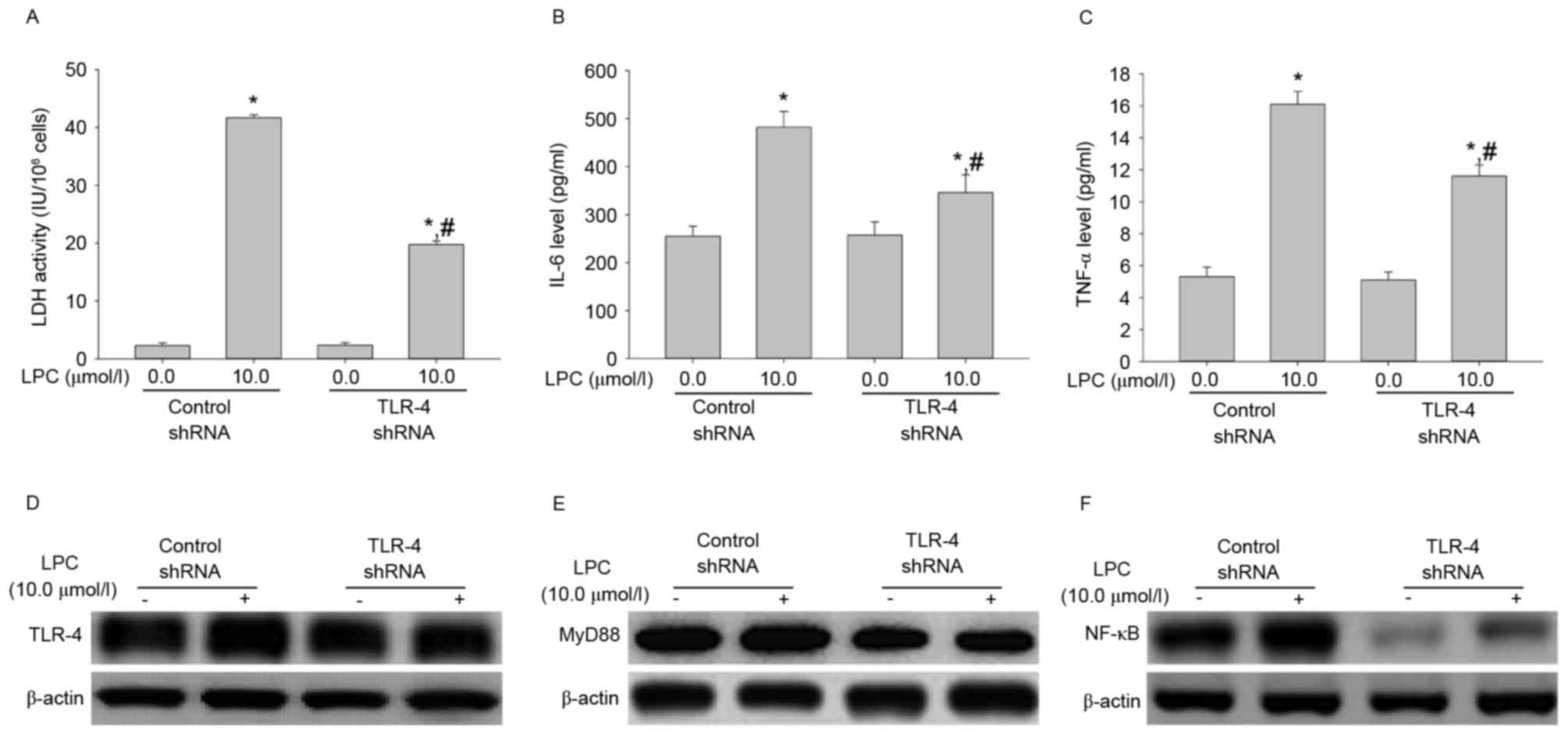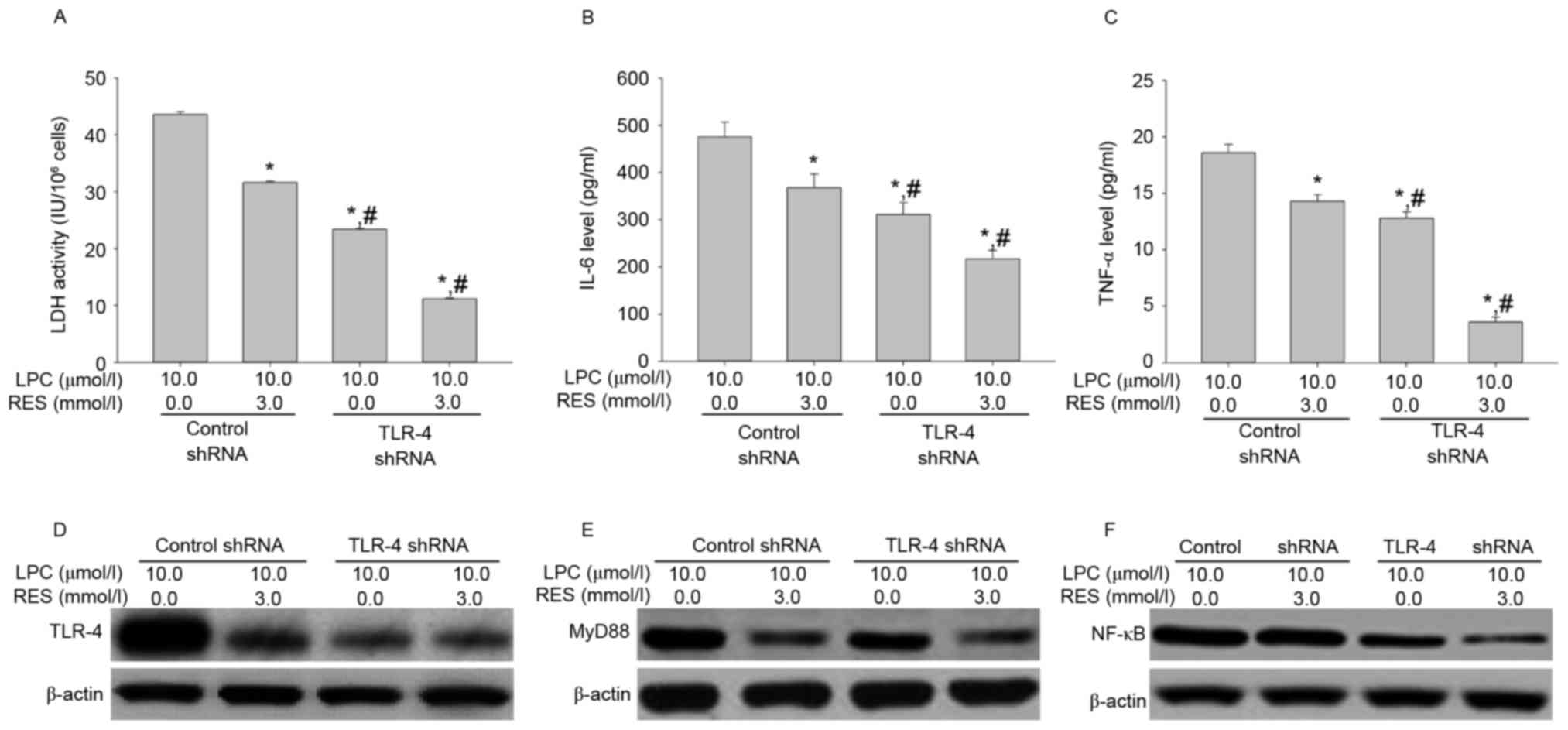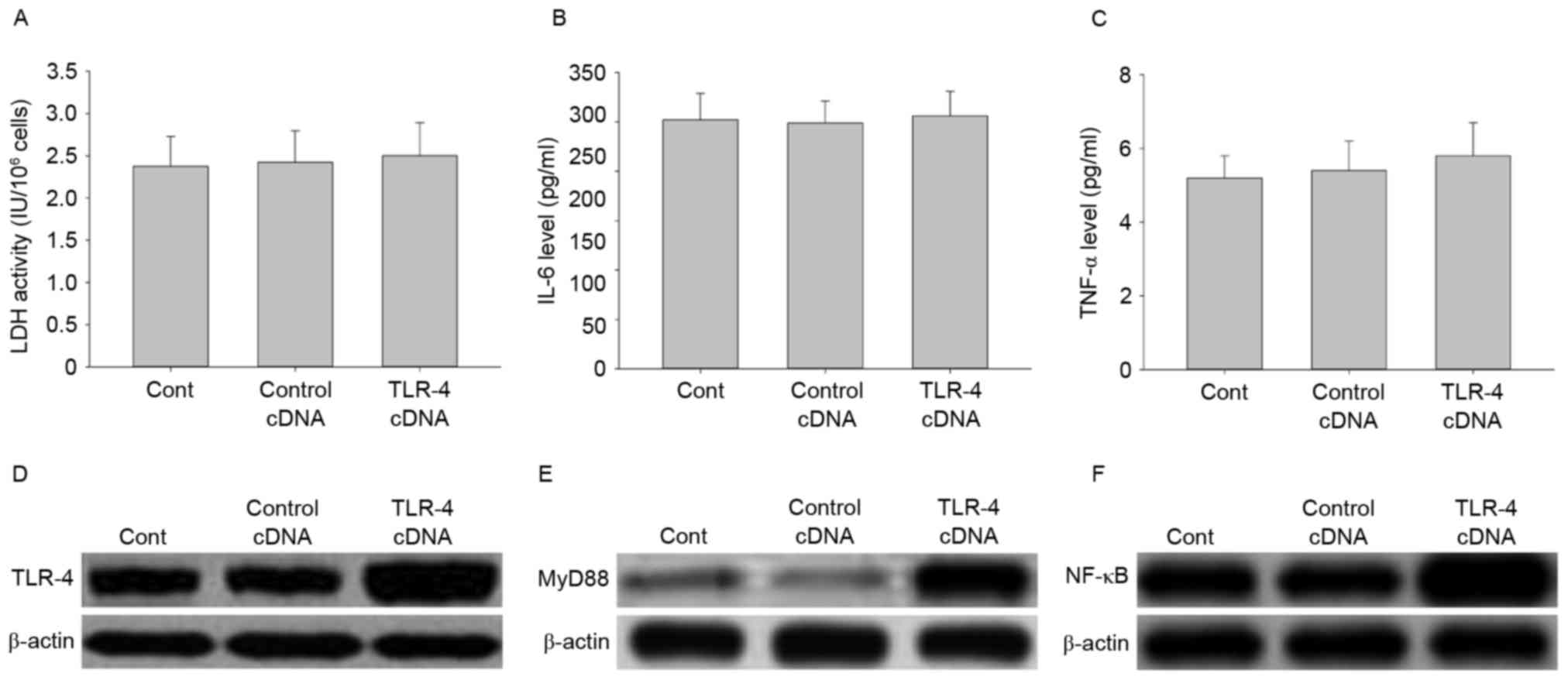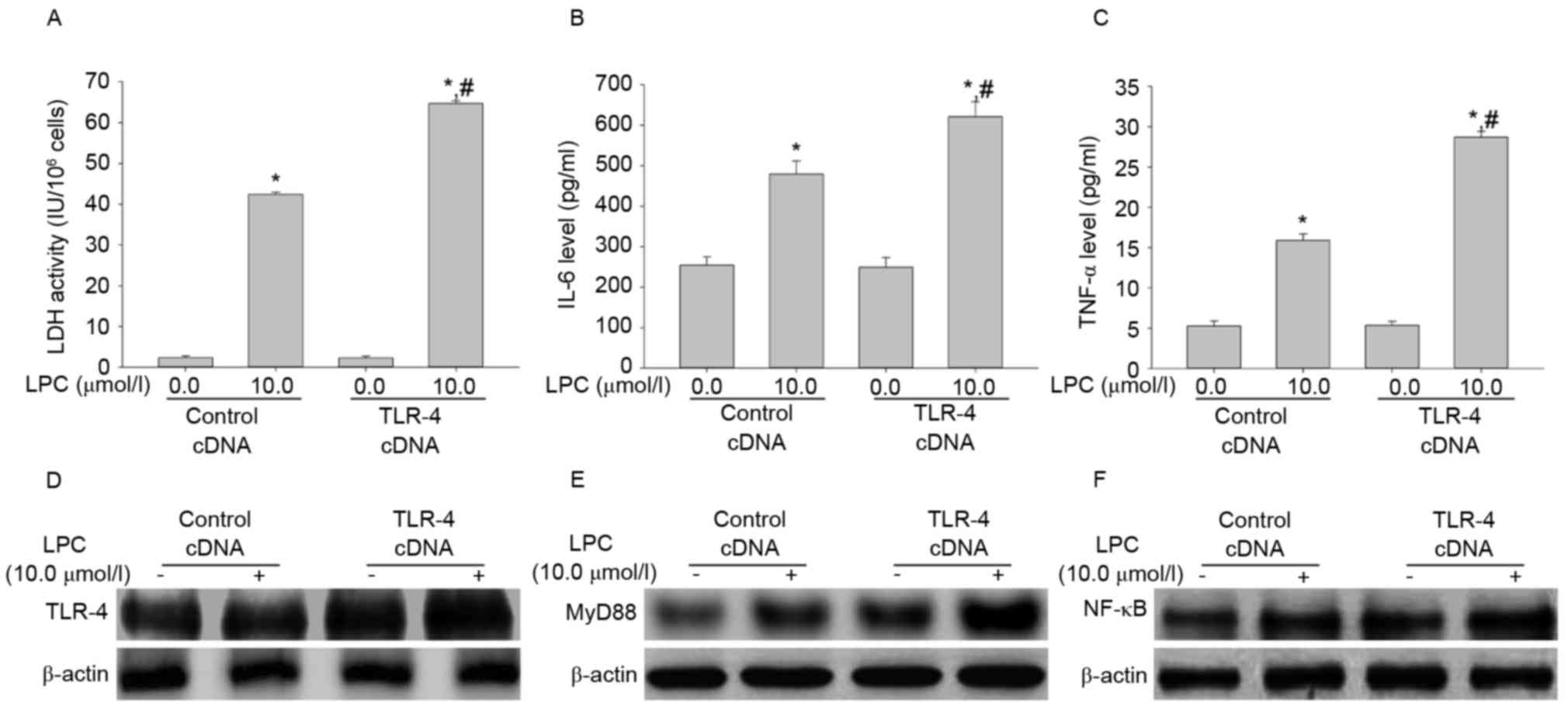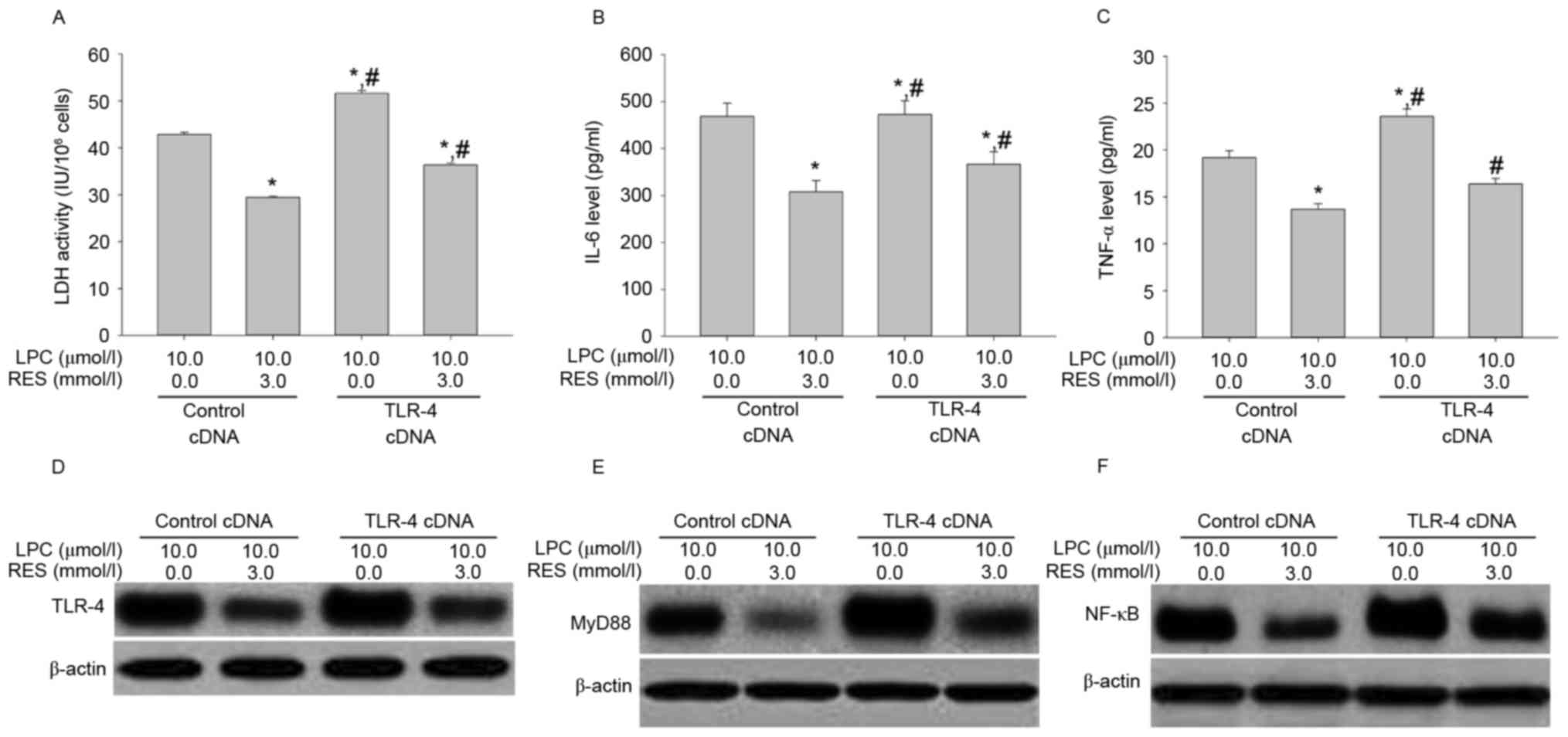|
1
|
Domeij H, Hua X, Su J, Bäcklund A, Yan Z,
Frostegard AG, Haeggström JZ, Modéer T and Frostegard J: Annexin A5
inhibits atherogenic and pro-inflammatory effects of
lysophosphatidylcholine. Prostaglandins Other Lipid Mediat.
106:72–78. 2013. View Article : Google Scholar : PubMed/NCBI
|
|
2
|
Sheldon IM, Cronin JG, Healey GD, Gabler
C, Heuwieser W, Streyl D, Bromfield JJ, Miyamoto A, Fergani C and
Dobson H: Innate immunity and inflammation of the bovine female
reproductive tract in health and disease. Reproduction.
148:R41–R51. 2014. View Article : Google Scholar : PubMed/NCBI
|
|
3
|
Gao W, Zhou Y, Li Q, Zhou Q, Tan L, Song
Y, Zhao X, Yu M, Zheng S, Ye H, et al: Analysis of global gene
expression profiles suggests a role of acute inflammation in type
3C diabetes mellitus caused by pancreatic ductal adenocarcinoma.
Diabetologia. 58:835–844. 2015. View Article : Google Scholar : PubMed/NCBI
|
|
4
|
Coussens LM and Werb Z: Inflammation and
cancer. Nature. 420:860–867. 2002. View Article : Google Scholar : PubMed/NCBI
|
|
5
|
Strowig T, Henao-Mejia J, Elinav E and
Flavell R: Inflammasomes in health and disease. Nature.
481:278–286. 2012. View Article : Google Scholar : PubMed/NCBI
|
|
6
|
Bradamante S, Barenghi L and Villa A:
Cardiovascular protective effects of resveratrol. Cardiovasc Drug
Rev. 22:169–188. 2004. View Article : Google Scholar : PubMed/NCBI
|
|
7
|
Libby P, Ridker PM and Maseri A:
Inflammation and atherosclerosis. Circulation. 105:1135–1143. 2002.
View Article : Google Scholar : PubMed/NCBI
|
|
8
|
Kim D, Nguyen MD, Dobbin MM, Fischer A,
Sananbenesi F, Rodgers JT, Delalle I, Baur JA, Sui G, Armour SM, et
al: SIRT1 deacetylase protects against neurodegeneration in models
for Alzheimer's disease and amyotrophic lateral sclerosis. EMBO J.
26:3169–3179. 2007. View Article : Google Scholar : PubMed/NCBI
|
|
9
|
Youn HS, Lee JY, Fitzgerald KA, Young HA,
Akira S and Hwang DH: Specific inhibition of MyD88-independent
signaling pathways of TLR3 and TLR4 by resveratrol: Molecular
targets are TBK1 and RIP1 in TRIF complex. J Immunol.
175:3339–3346. 2005. View Article : Google Scholar : PubMed/NCBI
|
|
10
|
Apetoh L, Ghiringhelli F, Tesniere A,
Obeid M, Ortiz C, Criollo A, Mignot G, Maiuri MC, Ullrich E,
Saulnier P, et al: Toll-like receptor 4-dependent contribution of
the immune system to anticancer chemotherapy and radiotherapy. Nat
Med. 13:1050–1059. 2007. View
Article : Google Scholar : PubMed/NCBI
|
|
11
|
Huang RL, Yuan Y, Zou GM, Liu G, Tu J and
Li Q: LPS-stimulated inflammatory environment inhibits
BMP-2-induced osteoblastic differentiation through crosstalk
between TLR4/MyD88/NF-kB and BMP/Smad signaling. Stem Cells Dev.
23:277–289. 2014. View Article : Google Scholar : PubMed/NCBI
|
|
12
|
Augoff K, Hryniewicz-Jankowska A and
Tabola R: Lactate dehydrogenase 5: An old friend and a new hope in
the war on cancer. Cancer Lett. 358:1–7. 2015. View Article : Google Scholar : PubMed/NCBI
|
|
13
|
Aiyar N, Disa J, Ao Z, Ju H, Nerurkar S,
Willette RN, Macphee CH, Johns DG and Douglas SA:
Lysophosphatidylcholine induces inflammatory activation of human
coronary artery smooth muscle cells. Mol Cell Biochem. 295:113–120.
2007. View Article : Google Scholar : PubMed/NCBI
|
|
14
|
Qin X, Qiu C and Zhao L:
Lysophosphatidylcholine perpetuates macrophage polarization toward
classically activated phenotype in inflammation. Cell Immunol.
289:185–190. 2014. View Article : Google Scholar : PubMed/NCBI
|
|
15
|
Li JZ, Wu JH, Yu SY, Shao QR and Dong XM:
Inhibitory effects of paeoniflorin on
lysophosphatidylcholine-induced inflammatory factor production in
human umbilical vein endothelial cells. Int J Mol Med. 31:493–497.
2013. View Article : Google Scholar : PubMed/NCBI
|
|
16
|
Tsou TC, Liou SH, Yeh SC, Tsai FY and Chao
HR: Crucial role of Toll-like receptors in the zinc/nickel-induced
inflammatory response in vascular endothelial cells. Toxicol Appl
Pharmacol. 273:492–499. 2013. View Article : Google Scholar : PubMed/NCBI
|
|
17
|
Wang Y, Tu Q, Yan W, Xiao D, Zeng Z,
Ouyang Y, Huang L, Cai J, Zeng X, Chen YJ and Liu A: CXC195
suppresses proliferation and inflammatory response in LPS-induced
human hepatocellular carcinoma cells via regulating
TLR4-MyD88-TAK1-mediated NF-kB and MAPK pathway. Biochem Biophys
Res Commun. 456:373–379. 2015. View Article : Google Scholar : PubMed/NCBI
|
|
18
|
Bomfim GF, Echem C, Martins CB, Costa TJ,
Sartoretto SM, Dos Santos RA, Oliveira MA, Akamine EH, Fortes ZB,
Tostes RC, et al: Toll-like receptor 4 inhibition reduces vascular
inflammation in spontaneously hypertensive rats. Life Sci. 122:1–7.
2015. View Article : Google Scholar : PubMed/NCBI
|
|
19
|
Bucci M, Vellecco V, Harrington L,
Brancaleone V, Roviezzo F, Mattace Raso G, Ianaro A, Lungarella G,
De Palma R, Meli R and Cirino G: Cross-talk between Toll-like
receptor 4 (TLR4) and proteinase-activated receptor 2 (PAR (2)) is
involved in vascular function. Br J Pharmacol. 168:411–420. 2013.
View Article : Google Scholar : PubMed/NCBI
|
|
20
|
Riccioni G, Gammone MA, Tettamanti G,
Bergante S, Pluchinotta FR and D'Orazio N: Resveratrol and
anti-atherogenic effects. Int J Food Sci Nutr. 66:603–610. 2015.
View Article : Google Scholar : PubMed/NCBI
|
|
21
|
Zhang C, Lin G, Wan W, Li X, Zeng B, Yang
B and Huang C: Resveratrol, a polyphenol phytoalexin, protects
cardiomyocytes against anoxia/reoxygenation injury via the
TLR4/NF-κB signaling pathway. Int J Mol Med. 29:557–563. 2012.
View Article : Google Scholar : PubMed/NCBI
|
|
22
|
Li J, Xie C, Zhuang J, Li H, Yao Y, Shao C
and Wang H: Resveratrol attenuates inflammation in the rat heart
subjected to ischemia-reperfusion: Role of the TLR4/NF-κB signaling
pathway. Mol Med Rep. 11:1120–1126. 2015.PubMed/NCBI
|
|
23
|
Feng Y and Longmore GD: The LIM protein
Ajuba influences interleukin-1-induced NF-kappaB activation by
affecting the assembly and activity of the protein kinase
Czeta/p62/TRAF6 signaling complex. Mol Cell Biol. 25:4010–4022.
2005. View Article : Google Scholar : PubMed/NCBI
|
|
24
|
Deng YH, Alex D, Huang HQ, Wang N, Yu N,
Wang YT, Leung GP and Lee SM: Inhibition of TNF-α-mediated
endothelial cell-monocyte cell adhesion and adhesion molecules
expression by the resveratrol derivative,
trans-3,5,4′-trimethoxystilbene. Phytother Res. 25:451–457.
2011.PubMed/NCBI
|
|
25
|
Bonnefont-Rousselot D: Resveratrol and
cardiovascular diseases. Nutrients. 8:2502016. View Article : Google Scholar :
|















